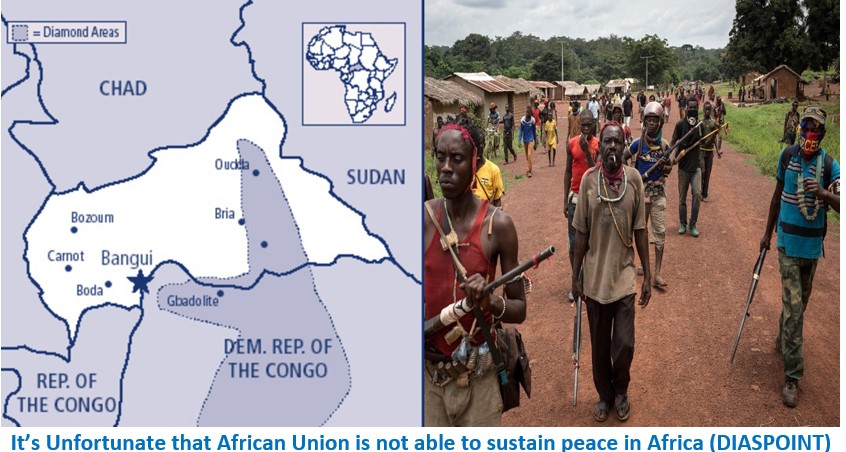Impact of Sudan crisis in the Central African Republic
Post By Diaspoint | May 1, 2023

The ongoing conflict in Sudan have started affecting the Central African Republic (CAR), mostly the northern region. As a result of insecurity along the border area, traffic between Sudan and CAR has been severely disrupted, causing a sharp increase in the price of basic commodities. Sudan supplies several towns in CAR, particularly Birao in the Vakaga Prefecture and Ndélé in the Bamingui-Bangoran Prefecture. During the rainy season from April to October, access is very challenged and supplies largely depend on Sudan. For some items, prices have doubled. A 50-kg bag of sugar, which sold for XAF 40,000 before the conflict is now worth XAF 80,000 in Birao. A small bowl of millet that used to cost XAF 500 is now worth XAF 1,000.
The northern region of CAR was already experiencing acute food insecurity, a situation that is projected to reach one of its most severe stages by August if an adequate response is not forthcoming. According to the 2023 Humanitarian Needs Overview released in November 2022, about 120,000 people are in need of humanitarian assistance and protection in northern CAR, and capacities to absorb additional needs are very limited.
Fearing for their safety, 12,600 Sudanese crossed the border into Am- Dafock in CAR and are living in spontaneous settlements. The dynamics of new arrivals are rapidly changing and local authorities are discussing the possibility of relocation to Birao.
Additional humanitarian teams arrived in Birao today from Bangui to travel to Am-Dafock this weekend, not only to further assess the situation, but also to provide emergency assistance, including clean water. A humanitarian partner continues to provide, among others, emergency medical and nutritional response, also reinforcing the stock of medicines at the local health center. Prior to the conflict, the humanitarian presence in this border region was very limited.
Currently, the most pressing needs include emergency shelter, food, clean water, and latrines.
UN Office for the Coordination of Humanitarian Affairs.
Source: reliefweb.int
Read More from original source
